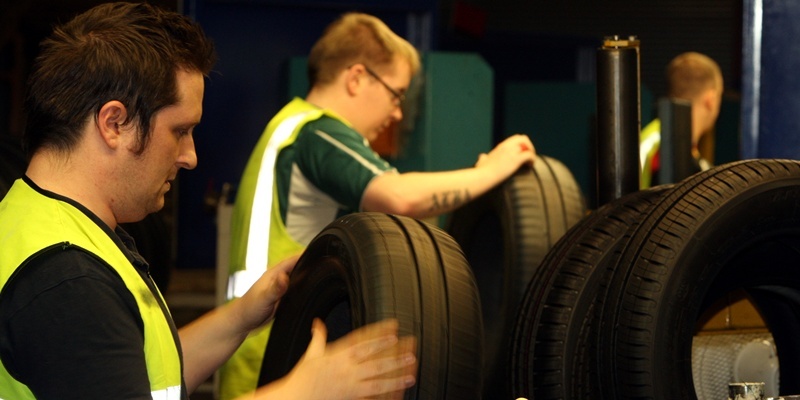Michelin has been forced to temporarily put the brakes on production output at its Dundee plant following a slowing in demand for car tyres.
The company said economic uncertainty in the eurozone had caused the situation but a spokesman for the Baldovie factory stressed there was no threat to the future of the plant or jobs from what is being viewed as a short-term fluctuation in the marketplace.
He said factory management were simply using the levers at their control to better align production output at the plant with short-term demand.
The move comes just months after Michelin announced a major programme of investment in the Dundee venue to establish a new line to produce the firm’s flagship new generation of energy-saving tyres.
The multi-million-pound cash injection has seen 150 new employees added to the workforce, taking the overall tally to around 900. The company is also seeking new recruits to join its Dundee apprenticeship programme.
The firm gave a trading update for 2011 last month in which it reported a 15% overall rise in revenues to 20.7bn euros a result helped by a significant upturn in demand in the first quarter of 2011 before the market slowed to a pace more in line with long-term trends.
The Dundee factory, which normally produces around 21,000 new tyres every day, is now feeling the effects of that decline but management are hopeful volumes will pick up again in the medium term.
The spokesman said: ‘2011 was a very successful year for the plant with the announcement of major inward investment supported by a grant from the Scottish Government, leading to an expansion in the plant capacity and the recruitment of 150 new employees 2012 has seen a slowing of demand in the market for car tyres caused by the economic uncertainty in the eurozone.
”We have supplied high levels of winter tyres to wholesalers and other customers, however the winter conditions across Europe has meant that the onward distribution of these has slowed. In response to this, the factory is using its in-built flexibility model that allows the plant to adjust its output in line with the market.
”This is the normal response to any changes in the market, whether it be an increase in demand or a reduction in demand. There are no prospects of impact on job security. In fact we are continuing to grow the workforce, recently launching our 2012 recruitment campaign for apprentice training.
”We have trained over 400 apprentices during the 40-year history of the factory and remain committed to doing so. We will continue to monitor the situation and utilise our flexibility accordingly either increasing or reducing demand in line with the market.”
